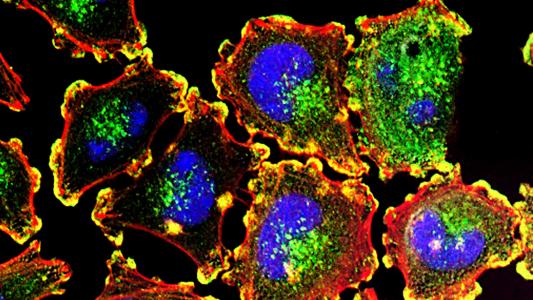Widespread coronavirus immunity is the key to ending the pandemic — after all, a virus can’t spread if it runs out of new people to infect.
Right now, we have two paths to this herd immunity. One is a COVID-19 vaccine, and the other is simply surviving a COVID-19 infection.
Both paths leave a person’s immune system armed with antibodies, T cells, and other cellular weapons that will attack the coronavirus on sight, preventing a new infection.
But how long will immunity to the coronavirus last?
Reports of reinfections and declining antibody levels in COVID-19 survivors have left some worried that coronavirus immunity might be temporary, meaning people could be infected again and again, making it much harder to get the pandemic under control.
A vaccine could deliver permanent immunity even when a natural infection does not, but that’s not a given. Vaccines for other diseases sometimes require regular booster shots, and the same might be true for a COVID-19 vaccine — we won’t know until we get one.
That might not be necessary, though, as the most robust study into coronavirus immunity so far suggests immunity should last — possibly for many years.
Measuring Coronavirus Immunity
Eight months after recovery, most COVID-19 survivors have enough coronavirus-fighting immune cells and antibodies to ward off a second infection, according to the new study, released on the preprint server bioRxiv.
Based on their analysis, the researchers behind the study suspect that the ability to ward off a severe COVID-19 infection could last far longer.
“That amount of (immune) memory would likely prevent the vast majority of people from getting hospitalized disease, severe disease, for many years,” study co-leader Shane Crotty, a virologist at the La Jolla Institute of Immunology, told the New York Times.
The researchers came to those conclusions about coronavirus immunity by analyzing blood samples from 185 COVID-19 survivors between the ages of 19 and 81.
Coronavirus antibodies were durable, with levels declining only modestly.
Most participants contributed a single sample, but 38 participants provided several. The date of collection ranged from just six days after the onset of symptoms to eight months after.
The study measured levels of four different immune responses: coronavirus antibodies, the B cells that make the antibodies, and two types of T cells, which help identify and kill infected cells.
They determined that coronavirus antibodies were durable, with levels declining only modestly six to eight months after an infection took hold. T cell levels dropped slowly, but B cell levels actually increased.
The finding conflicts with earlier antibody surveys in the U.K. and Spain, which found small declines in the number of people with antibodies over the summer.
Those studies were much larger, sampling hundreds of thousands of people, but they used finger-prick antibody tests, which are less reliable than the lab tests done by Crotty’s study. It’s also possible that the European surveys picked up asymptomatic cases, which had larger declines in antibodies than the COVID-19 cases that Crotty’s group examined.
The Path to Herd Immunity
The study has yet to go through peer review, and the collection of just one sample from most participants is a problem — it’s impossible to say how much change occurs in coronavirus immunity if we only have data from one point in time.
The immune response to the virus is more long-lived than previously thought.
Lawrence Young
Still, the fact that the levels were high enough to prevent an infection in the survivors who were studied 8 months out is encouraging, and it would be surprising if memory cells were to suddenly plummet after this point, Yale University immunologist Akiko Iwasaki, who wasn’t involved with the study, told the NYT.
Ultimately, the new study suggests that widespread coronavirus immunity — through a combination of natural infection and vaccines — could be within our grasp.
“(T)he significant take home message is that the immune response to the virus is more long-lived than previously thought, and this lets us continue to hold hope that an effective vaccine will be able to induce sustained protective immunity,” Lawrence Young, a professor of molecular oncology at the University of Warwick, who wasn’t involved in the study, said in a statement.
We’d love to hear from you! If you have a comment about this article or if you have a tip for a future Freethink story, please email us at [email protected].






